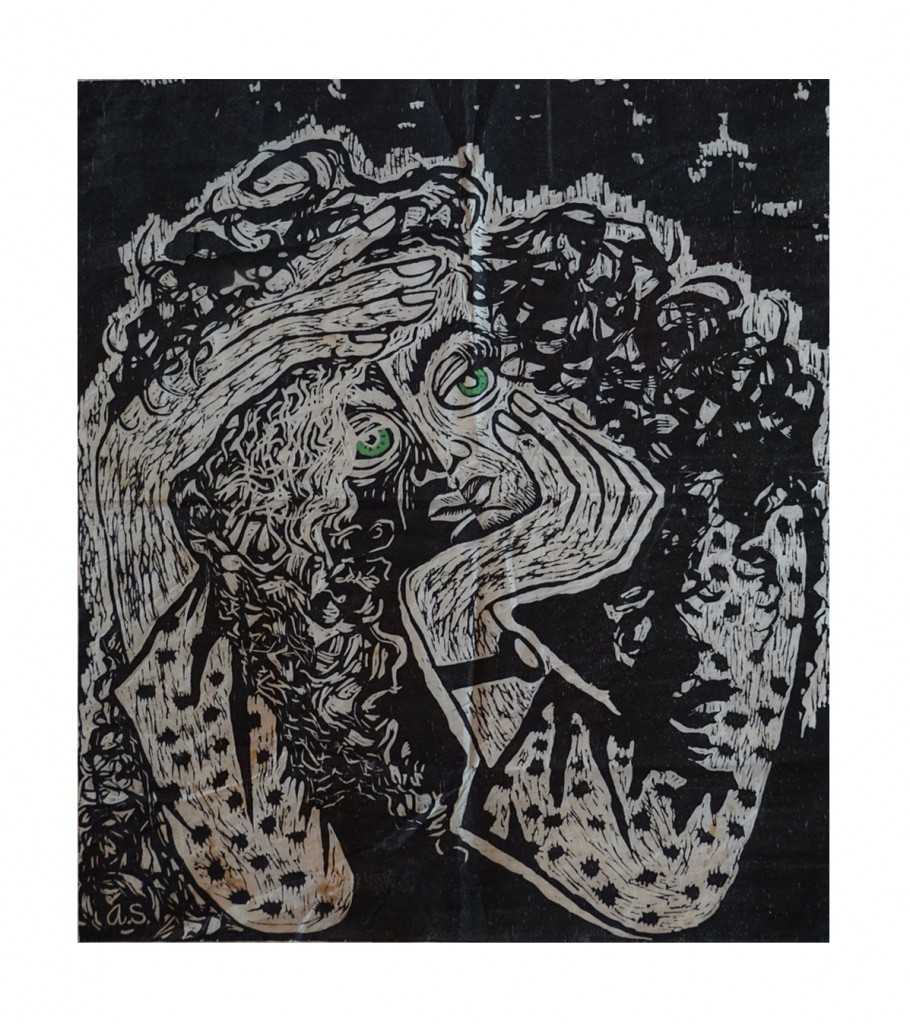
Here’s an answer to the “Why is this happening to me? This is not the life I’d planned!!!” that many of us feel from time to time. I heard it from Shimona Tzukernik, Kabbalah (ancient mystical teaching on spiritual transformation) teacher extraordinaire: “Plan B is the Real Plan A.” Pretty profound. Our challenges in life as paths to our spirituality. Oh sure, we’d be comfortable in the lives we imagined in our heads, the ones we’d planned. But, we would never have been challenged by them–those make-believe lives.
If we’ve lived long enough to have disappointments in our lives, we tend to get
stuck. That is, we believe that life should have turned out the way we planned: Maybe finish school, find a job, find our practically-perfect soul-mates, have some practically-perfect kids, launch those kids, have some practically-perfect grandkids, and end up as Meryl Streep and Tommy Lee Jones (with Steve Carrell’s help) in the comedy “Hope Springs.” Yes, the couple–Kay and Arnold–have some stuck-points; but, ultimately everybody grows and ends up laughing together and saying uncharacteristic things at the end of the movie.
But, outside of the realm of motion pictures, all of us ordinary humans have troubles of one kind or another that challenge our coping skills and continue to aggravate us until death do us part.
As a divorced woman in my sixties, with two grown sons who live (as grown-children often do) far away from where I do and having moved around a lot, myself– I sometimes wonder: “Was my life supposed to turn out this way?” I mean, I expected to have my sons grow up and leave home. What I didn’t expect was that I would not have a partner with me or a community of family and kin living nearby who held my history; people who knew who I was before I qualified for movie discounts and Social Security.
When I think back to what I came to expect in my childhood, it was a life, not unlike my parents’ lives. People married in their twenties and lived a long life together, surrounded by aunts and uncles and cousins and old friends. I guess that was my Plan A. However, as Shimona says, Plan B is the real Plan A.
I find that being without a partner or without close family nearby, I have learned to rely on myself. And when I do stretch my comfort zone and find new ways to solve problems, I find I feel pretty darned good about myself. When I have to find a way to deal with a flat tire or take myself to the airport and take myself home–I may have an inner-tantrum about it, but I always end up solving the problem and feeling proud of my independence.
Lately, there are those nights when I come home after work and find the phone isn’t constantly ringing. In these times, my i-phone texting, my e-mails, and you–who I talk to through my internet connection–have become my best friends. There are times I love this quiet creatively-conducive life. There are also times where I wonder: “Why? Why hasn’t my life turned out the way I thought it would?” That is, why aren’t I with a loving mate who has known and loved me forever, surrounded by family and friends who hold my history in their memories along with their own.
The answer to that “Why?” is simple. Nobody’s life entirely turns out according to their plan. My old friends and family (who live in Jersey, New York, Illinois, Georgia, Virginia, North Carolina, Tennessee and France), even those who do have family/friends-with-history all around them have other challenges: their children; their grandchildren; their health….They, too, are looking over at someone else’s life (perhaps mine, at times) and wondering why their lives haven’t turned out the way they assumed they would. My guess is that when they wonder about that particular why, they are only looking at the part/s of their lives they find challenging.
That’s why 12-Step Programs, whether focused on compulsive overeating or compulsive drinking or gambling or sexing or what-all–all of these programs look at the particular challenge–once considered a block–in one’s life, as a path to spiritual connection. If our lives were storybook-perfect, would any of us have looked beyond ourselves or our perfect lives for help? Would any of us had looked for a deeper connection to our Soul’s journey? For meaning in our pain?
 “Plan-B-as-the-Real-Plan-A” is a really Feels-True way of finding purpose in what hurts us the most. Rather than seeing that substance-abusing partner or acting out child or those painful physical symptoms as “Poor me, this never should have happened”; we can see these difficulties as a path we needed to trod in order to uncover our connection to Spirit, whatever form that takes for us. That doesn’t mean we don’t have to do some limit-setting in the now; but, it does mean there’s a lesson in the difficulty. We can learn it or we possibly (and, stay with me, here, this is important!) have to repeat it.
“Plan-B-as-the-Real-Plan-A” is a really Feels-True way of finding purpose in what hurts us the most. Rather than seeing that substance-abusing partner or acting out child or those painful physical symptoms as “Poor me, this never should have happened”; we can see these difficulties as a path we needed to trod in order to uncover our connection to Spirit, whatever form that takes for us. That doesn’t mean we don’t have to do some limit-setting in the now; but, it does mean there’s a lesson in the difficulty. We can learn it or we possibly (and, stay with me, here, this is important!) have to repeat it.
Okay, now it’s time for a story–and you may have heard this one before–but it’s worth telling again. A man dies and is taken to the afterlife by an Angel. When they arrive, the newly-crossed-over man sees a table of delicious-smelling soup. The table is surrounded by people with spoons, but their arms don’t bend, so they can’t get the spoons in their mouths. “Is this heaven?” says the man to the angel. “No,” says the angel, “This is hell.” Then the angel takes the man to another room and says, “This is heaven.” And the newly-passed man sees another table and another delicious smelling soup. Like the last room, everybody has a spoon but their arms don’t bend enough to reach their mouths. The man is confused and he says to the Angel, “I don’t get it. This is just like the last room. There’s a wonderful smelling soup, and everybody has a spoon, but the people around the table can’t bend their arms either.” The angel tells him, “Look more closely…” And, as the man does, he sees that, here, the people are feeding one another. Now, tha’s what I’m talking ’bout: Plan B as the real Plan A!
You must be logged in to post a comment.